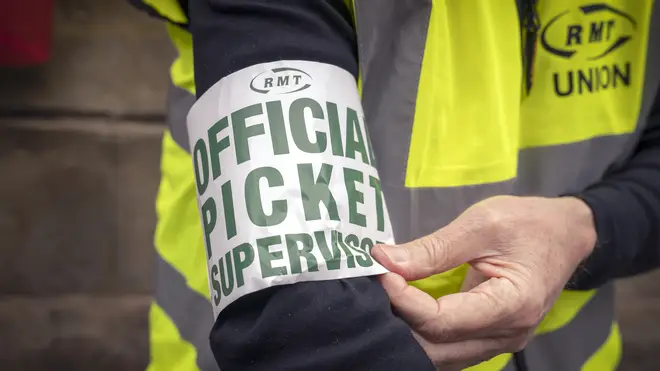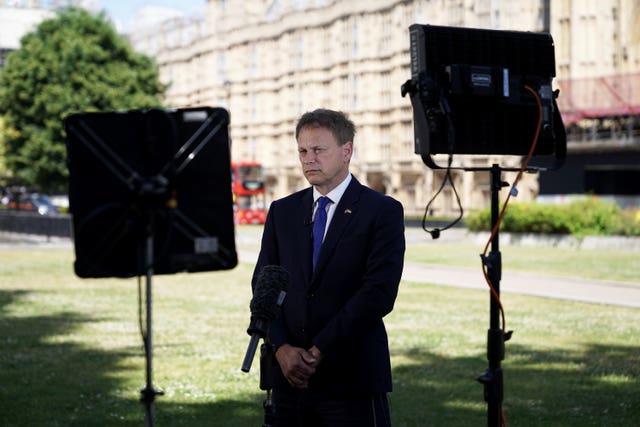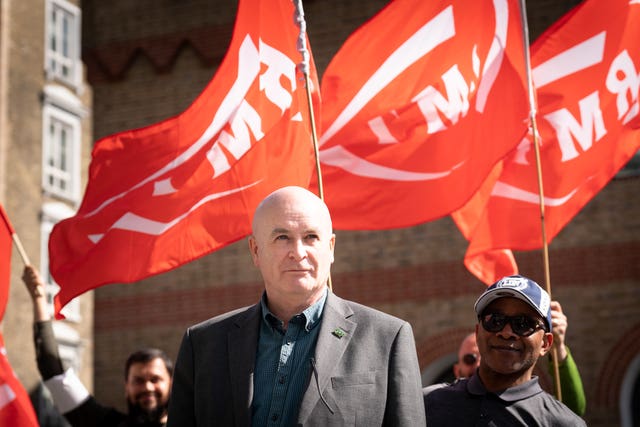
Tom Swarbrick 4pm - 6pm
26 June 2022, 09:44

The TUC said an independent legal opinion undermined the Government’s claims that the rail dispute is just between the train operators and unions.
The Government is being accused of “misleading” the public by insisting it does not have a role in negotiations to resolve the bitter rail dispute.
The TUC said an independent legal opinion undermined the Government’s claims that the dispute is just between the train operators and unions.
The union organisation said the legal opinion it has received clarifies that the contracts between rail operators and Government allow the Government to apply financial sanctions if operators do not follow its directions in the current dispute.

The legal opinion, commissioned by the TUC from Michael Ford QC of Old Square Chambers, advises that Transport Secretary Grant Shapps has “very extensive powers” over what can be agreed between rail operators and unions, and “very significant contractual power” to direct how industrial disputes are handled, the TUC said.
Rail operators are not free to agree terms and conditions with their employees without the involvement of the Transport Secretary, Grant Shapps, according to the advice.
The legal advice given to the TUC added that before discussing any changes to pay, terms and conditions, redundancies, or restructuring with rail unions, rail operators must agree a mandate with the Transport Secretary.
However, the Department for Transport said it was “misleading “ to say Mr Shapps should get involved in the talks.
Train services were disrupted again on Sunday morning following the third strike of the week on Saturday by members of the Rail, Maritime and Transport union who are taking action over jobs, pay and conditions.
TUC general secretary Frances O’Grady said: “The Prime Minister and his Transport Secretary have misled the public.
“When they said the Government has no role in handling this dispute, that’s not true.
“When they said negotiations are just for the employers and the unions, that’s not right.
“We always believed that Conservative ministers had the power to pull the train companies’ strings, behind the scenes, and this legal opinion on rail contracts confirms it.

“The Transport Secretary could unlock this dispute. Instead, he has toured TV studios throwing fuel on the fire and trying to turn working people against each other.
“We deserve honesty from our Government. We deserve fair negotiation so we can make fair agreements.
“This week, Britain needs its Conservative Government to stop stirring and to start helping to solve this dispute. Rail workers, who the transport minister once described as pandemic heroes, deserve job security and the decent pay rise that they have earned.”
A Department for Transport spokesperson said: “It’s extremely misleading to suggest the Transport Secretary should get involved in these negotiations.
“His role is to protect the public purse, ensuring value for money for the hardworking people of this country.
“As such, he’s required to set the limits of taxpayer support and ultimately sign off on any deal – not to be involved in negotiating one – and his contracts with operators allow him to do precisely that.

“The union knows full well that negotiations over pay and working practices don’t happen with the Government – they happen with the employers of the people they represent. In this case, that’s Network Rail and the train operating companies.
“We once again urge union representatives to get back round the negotiating table instead of calling further strikes which serve only to bring disruption to people across the country.”
RMT general secretary Mick Lynch said: “We’ve always known the Government have extensive powers in these negotiations and this legal opinion confirms that.
“Grant Shapps needs to stop shackling the rail companies and allow RMT to make a deal, like we have dozens of times since privatisation.
“The Transport Secretary is not allowing a written guarantee of no compulsory redundancies to be given and this must change.
“We will continue negotiations next week to win a cost of living pay rise and job security for our members.”